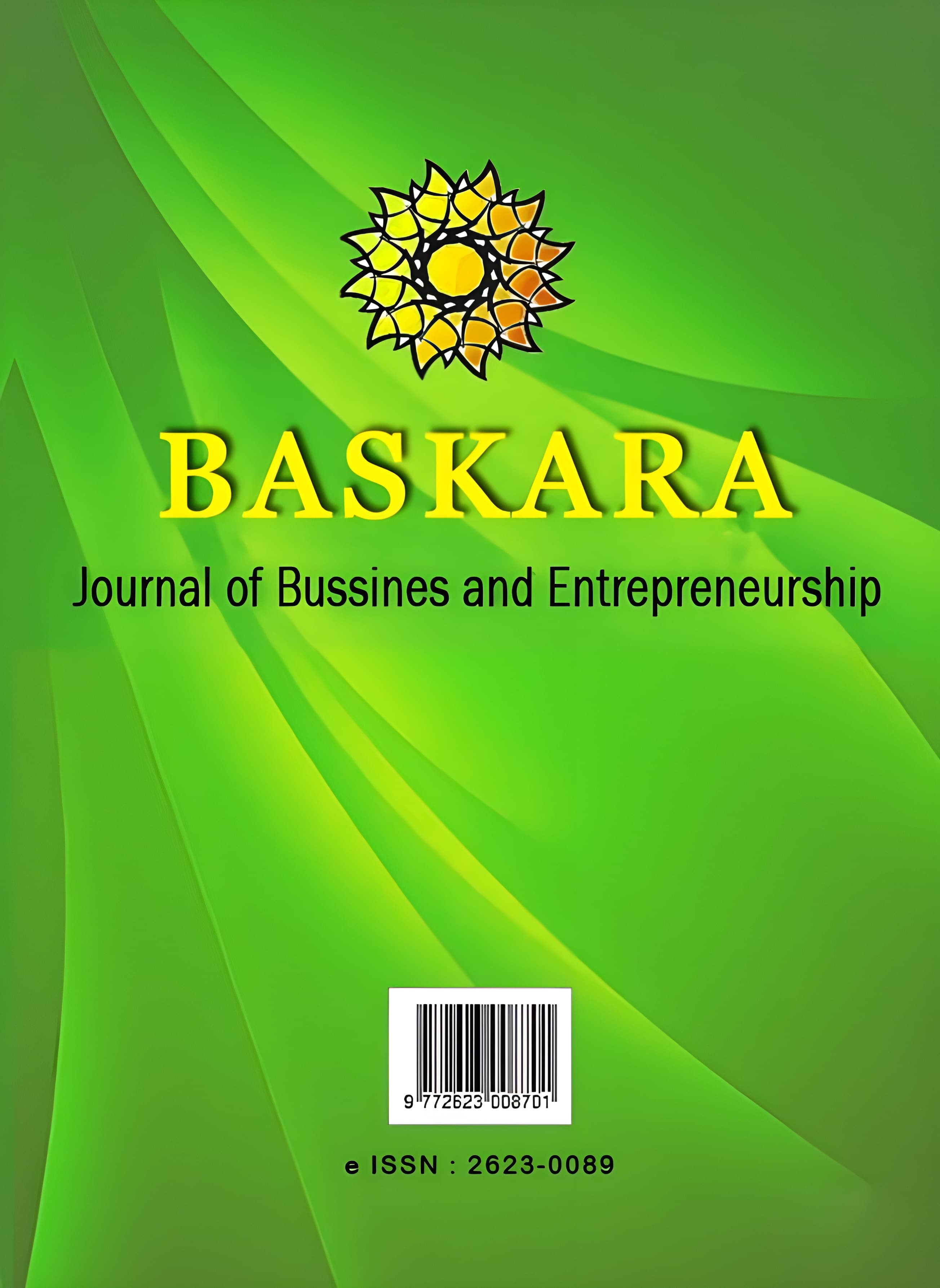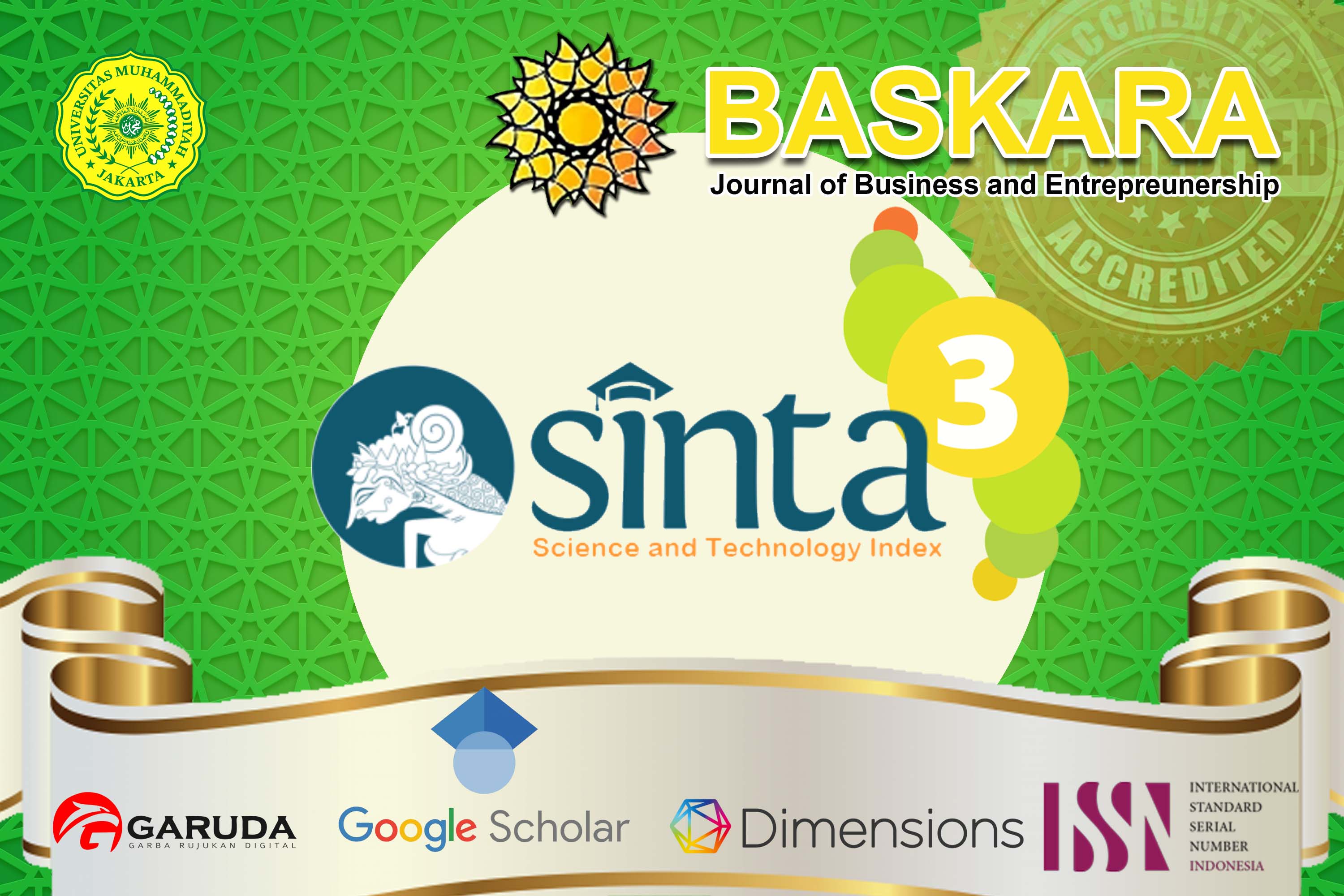The Role of Education in Tourism Development: Focus on Attractions, Amenities, and Accessibility
Keywords:
Education Tourism Development, Attractions, Amenities And AccessibilityAbstract
This study aims to develop a theoretical proposition concerning the role of education in tourism development based on the core components of attractions, amenities, and accessibility (commonly referred to as the 3A framework). The background of this research lies in the limited integration of educational strategies in shaping sustainable and competitive tourism sectors. Education is identified as a key factor in enhancing human resource capabilities, facility management, and accessibility planning—primarily through vocational training, curriculum development, and knowledge-based policy-making. The study employs a qualitative method using literature review and bibliometric analysis with the aid of Vosviewer software. The research offers a theoretical and historical analysis of how education supports tourism development by improving the quality and sustainability of attractions, enhancing the management and service standards of amenities, and increasing accessibility through inclusive policy frameworks and data-driven infrastructure planning. The findings suggest that the effectiveness of the 3A components is significantly influenced by the educational capacity and competencies of tourism stakeholders. This paper provides a conceptual foundation for future studies and recommends further empirical investigation using exploratory or confirmatory factor analysis. Future researchers are encouraged to examine the causal relationships between educational strategies and the enhancement of tourism infrastructure and services using quantitative and multilevel analytical methods.References
REFERENCES
Ambrose, Ivor, and Katerina Papamichail. 2021. “Information Tools for Cultural Tourism Destinations: Managing Accessibility.” ToSEE–Tourism in Southern and Eastern Europe 6: 25–37.
Aprilia, Chika Putri, Salahuddin Salahuddin, and Tri Sulistyaningsih. 2022. “Analisis Analisis Pemberdayaan Masyarakat Dalam Pengembangan Pariwisata Berbasis Masyarakat Menggunakan Vosviewer.” PRAJA: Jurnal Ilmiah Pemerintahan 10(1): 31–39. doi:10.55678/prj.v10i1.615.
Arfan, Arfan, Ridwan Ridwan, Faigah A Badjamal, Hasmari Hasmari, and Ratnawati Ratnawati. 2020. “Pengembangan Geowisata Berwawasan Edukasi Dan Kearifan Lokal Di Desa Anca Kecamatan Lindu Kabupaten Sigi.” LOGISTA-Jurnal Ilmiah Pengabdian kepada Masyarakat 4(2): 402–7.
Astuti, Marhanani Tri, and Any Ariani Noor. 2016. “Daya Tarik Morotai Sebagai Destinasi Wisata Sejarah Dan Bahari.” Jurnal Kepariwisataan Indonesia 11(1): 25–46.
Atraksi, Kajian, and Amenitas D A N Aksesibilitas. 2018. “Oleh Amira Dzatin Nabila.” : 348180.
Christine, Adriana. 2021. “Pengaruh Atraksi, Aktivitas, Aksesibilitas, Akomodasi, Amenitas Terhadap Kepuasan Berkunjung Dan Loyalitas Wisatawan Pada Museum T. B Silalahi Center.” Journal Manajemen Pariwisata: 1–35.
DoddDodds, R., Ali, A., & Galaski, K. (2018). Mobilizing knowledge: determining key elements for success and pitfalls in developing community-based tourism. Current Issues in Tourism, 21(13), 1547–1568. https://doi.org/10.1080/13683500.2016.1150257s, Rachel, Alisha Ali, and Kelly Galaski. 2018. “Mobilizing Knowledge: Determining Key Elements for Success and Pitfalls in Developing Community-Based Tourism.” Current Issues in Tourism 21(13): 1547–68. doi:10.1080/13683500.2016.1150257.
Ferst, Marklea da Cunha, Sara Joana Gadotti dos Anjos, and Vitor Roslindo Kuhn. 2023. “Valuing Accessibility in Hospitality and the Loyalty of Tourists with Disabilities.” Turismo: Visão e Ação 25: 243–62.
Firmansyah, Fani, and Maretha Ika Prajawati. 2019. “Toward Ethical Consumer Behavior: Islamic Perspective (A Theoretical Framework of Investigating the Determinants).” International Journal of Engineering & Technology 8(1): 497–500. www.sciencepubco.com/index.php/IJET.
Gillovic, Brielle, and Alison McIntosh. 2020. “Accessibility and Inclusive Tourism Development: Current State and Future Agenda.” Sustainability 12(22): 9722.
Joseph, Legy Clara, Vasanthi Soundararajan, and Satyanarayana Parayitam. 2022. “The Relationship between Attraction, Perception of Service, Opportunities and Tourist Satisfaction in Backwater Tourism in Alappuzha District of Kerala in India.” Tourism and Hospitality Research 22(3): 314–35.
Khan, Asif, Sughra Bibi, Ardito Lorenzo, Jiaying Lyu, and Zaheer Udden Babar. 2020. “Tourism and Development in Developing Economies: A Policy Implication Perspective.” Sustainability 12(4): 1618.
Khotimah, Khusnul. 2017. “( Studi Kasus Pada Kawasan Situs Trowulan Sebagai Pariwisata Budaya Unggulan Di Kabupaten Mojokerto ).” 41(1): 56–65.
Khotimah, Khusnul, Wilopo, and Luchman Hakim. 2017. “Strategi Pengembangan Destinasi Pariwisata Budaya.” Jurnal Administrasi Bisnis 41(1): 56–65.
Khuong, Mai Ngoc, and Huynh Thi Thu Ha. 2014. “The Influences of Push and Pull Factors on the International Leisure Tourists’ Return Intention to Ho Chi Minh City, Vietnam — A Mediation Analysis of Destination Satisfaction.” International Journal of Trade, Economics and Finance 5(6): 490–96. doi:10.7763/ijtef.2014.v5.421.
Mihaela, Diaconu. “ACCESSIBILITY IN TOURISM-NEED AND OPPORTUNITY FOR THE TOURISM MARKET.”
Mocanu, Mihaela, Sergiu Bogdan Constantin, and Vasile Răileanu. 2021. “Determinants of Tax Avoidance–Evidence on Profit Tax-Paying Companies in Romania.” Economic Research-Ekonomska Istrazivanja 34(1): 2013–33. doi:10.1080/1331677X.2020.1860794.
Pangestuti, Ida Bagus Kade Wanda; Edriana. 2018. “PENGARUH PENGEMBANGAN KOMPONEN DESTINASI WISATA TERHADAP KEPUASAN PENGUNJUNG (Survei Pada Pengunjung Situs Trowulan).” Jurnal Administrasi Bisnis (Vol 55, No 3 (2018): FEBRUARI): 83–91. http://administrasibisnis.studentjournal.ub.ac.id/index.php/jab/article/view/2307/2703.
Parahiyanti, C R, A R W Permatasar, and F K Dewi. 2022. “Tourism Hospitality: Strategi Pengembangan Wisata Edukasi Dan Kuliner Pada Kelurahan Kampung Dalem Kota Kediri.” Jurnal Graha Pengabdian 4(3): 273–80.
Rohimah, Afifatur, Yusuf Hariyoko, and Beta Puspitaning Ayodya. 2018. “Jurnal Ilmiah Administrasi Publik ( JIAP ) Strategi Pengembangan Potensi Pariwisata Melalui Pendekatan Community Based.” Jurnal Ilmiah Administrasi Publik (JIAP) 4(4): 363–68.
Sinambela, Ella Anastasya. 2021. “Examining the Relationship between Tourist Motivation, Touristic Attractiveness, and Revisit Intention.” Journal of Social Science Studies (JOS3) 1(1): 25–30.
Suhartanto, Suhartanto. 2019. “Mewadahi Community Based Tourism Dalam Community Group Untuk Pengembangan Industri Pariwisata.” Efisiensi: Kajian Ilmu Administrasi 16(2): 39–51.
Susanto, Rani, and Anna Dara Andriana. 2016. “Majalah Ilmiah UNIKOM.” AKSESIBILITAS WISATA PADA KOTA METROPOLITAN DI NEGARA BERKEMBANG (Suatu Survey di Wilayah Bandung Raya) 11: 162.
Syaiful, Hendra, Agung Edy Wibowo, and Mohamad Nur Afriliandi Nasution. 2023. “Pengaruh Motivasi Terhadap Minat Kunjungan Ulang Wisatawan Mancanegara: Perspektif Faktor Penarik.” Jurnal Manajemen Kuliner 2(1): 54–72. doi:10.59193/jmn.v2i1.136.
Teixeira, Pedro, Leonor Teixeira, Celeste Eusébio, Samuel Silva, and António Teixeira. 2021. “The Impact of ICTs on Accessible Tourism: Evidence Based on a Systematic Literature Review.” ICT tools and applications for accessible tourism: 1–25.
Tumundo, Maria Angelita, I Wayan Kiki Sanjaya, and Firlie Lanovia Amir. 2024. “Strategi Pengembangan Daya Tarik Wisata Bahari.” Jurnal Ilmiah Pariwisata dan Bisnis 3(7): 1087–95.
Zhang, Yan, and Jiekuan Zhang. 2023. “Tourist Attractions and Economic Growth in China: A Difference-in-Differences Analysis.” Sustainability 15(7): 5649.
Downloads
Published
Issue
Section
License
Copyright (c) 2025 BASKARA : Journal of Business and Entrepreneurship

This work is licensed under a Creative Commons Attribution-NonCommercial 4.0 International License.
In order for Baskara: Journal of Business and Entrepreneurship to publish and disseminate research articles, we need publishing rights (transfered from author(s) to publisher). This is determined by a publishing agreement between the Author(s) and Baskara Journal. This agreement deals with the transfer or license of the copyright of publishing to Baskara: Journal of Business and Entrepreneurship, while Authors still retain significant rights to use and share their own published articles. Baskara : Journal of Business and Entrepreneurship supports the need for authors to share, disseminate and maximize the impact of their research and these rights, in any databases.
As a journal Author, you have rights for a large range of uses of your article, including use by your employing institute or company. These Author rights can be exercised without the need to obtain specific permission. Authors publishing in Baskara : Journal of Business and Entrepreneurship have wide rights to use their works for teaching and scholarly purposes without needing to seek permission, including:
- use for classroom teaching by Author or Author's institution and presentation at a meeting or conference and distributing copies to attendees;
- use for internal training by author's company;
- distribution to colleagues for their reseearch use;
- use in a subsequent compilation of the author's works;
- inclusion in a thesis or dissertation;
- reuse of portions or extracts from the article in other works (with full acknowledgement of final article);
- preparation of derivative works (other than commercial purposes) (with full acknowledgement of final article);
- voluntary posting on open web sites operated by author or author’s institution for scholarly purposes.
Copyright Transfer Agreement for Publishing (Publishing Right)
The Authors who submit manuscript has to understand that if accepted for publication, mean that all copyright and publishing right of the article shall be assigned/transferred to Baskara: Journal of Business and Entrepreneurship as assigned publisher.
- CC BY-NC: This license allows reusers to distribute, remix, adapt, and build upon the material in any medium or format for noncommercial purposes only, and only so long as attribution is given to the creator.
It includes the following elements:
BY ![]() – Credit must be given to the creator
– Credit must be given to the creator
NC ![]() – Only noncommercial uses of the work are permitted
– Only noncommercial uses of the work are permitted
Baskara (C) Copyright (2022):
BASKARA: Journal of Business and Entrepreneurship by https://jurnal.umj.ac.id/index.php/baskara
is licensed under a Creative Commons Attribution-NonCommercial 4.0 International License








